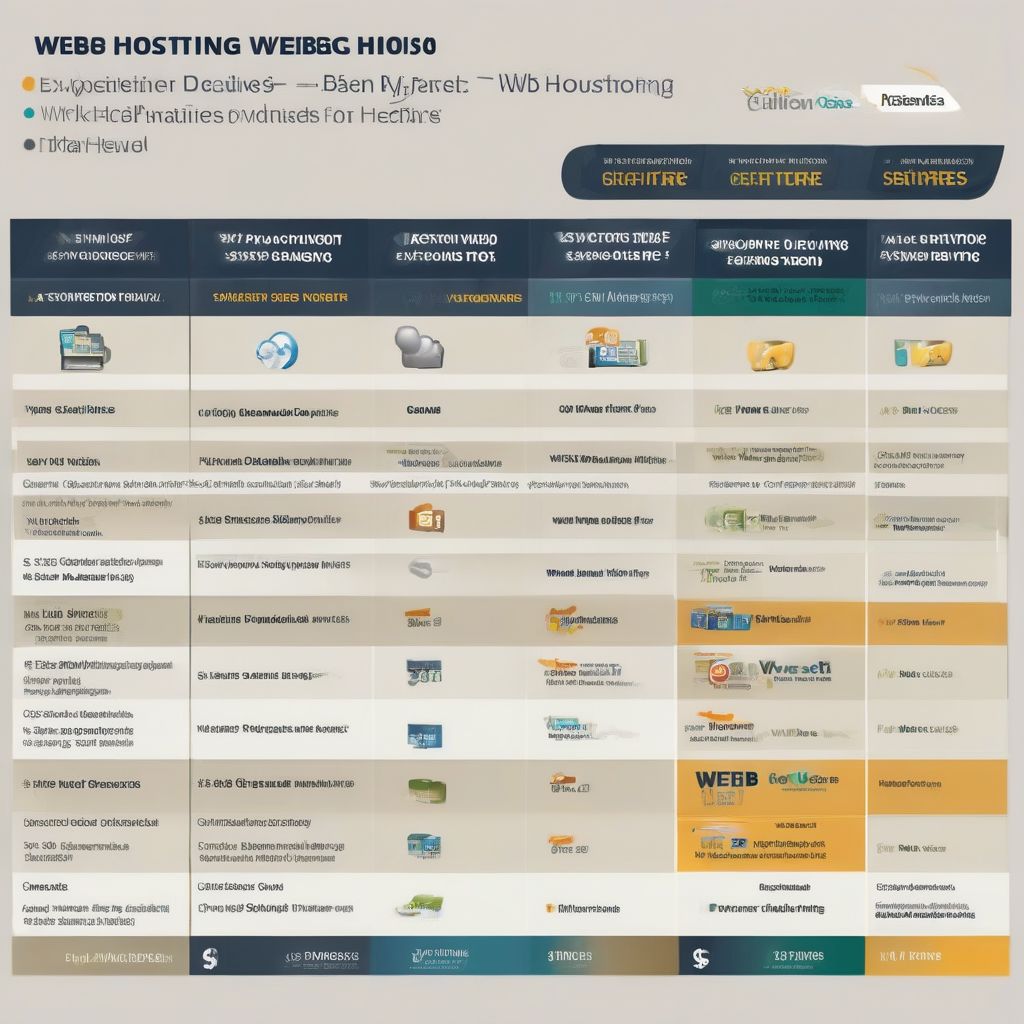
In today’s digital age, a strong online presence is crucial for businesses and individuals alike. Whether you’re launching a website for your e-commerce store, a blog to share your passions, or a portfolio to showcase your work, you need a reliable web hosting service to make your website accessible to the world. With countless web hosting providers available, each offering various plans and features, finding the right one can feel overwhelming. That’s where this guide comes in – to help you navigate the intricacies of choosing among the Good Web Hosting Sites and secure the perfect platform for your online endeavors.
Understanding Web Hosting and Its Importance
Before diving into the specifics of good web hosting sites, it’s crucial to understand what web hosting is and why it’s so important. Simply put, web hosting is like renting space on a powerful computer called a server. This server stores all your website’s files, images, and data and makes them accessible to anyone on the internet who types in your website address. Without web hosting, your website would simply not exist online.
A good web hosting service ensures:
- Website Accessibility: Your site is available 24/7, allowing visitors to access it anytime.
- Fast Loading Speeds: Slow loading times frustrate visitors and can hurt your search engine rankings.
- Data Security: Protection against malware and data breaches to keep your website and visitor information secure.
- Reliable Performance: Minimal downtime and consistent performance for a seamless user experience.
Key Factors to Consider When Choosing Good Web Hosting Sites
Now that you understand the significance of web hosting, let’s explore the crucial factors to consider when making your decision:
1. Types of Web Hosting: Finding the Right Fit
Not all web hosting plans are created equal. Understanding the different types is essential in choosing the one that best aligns with your website’s needs and budget:
- Shared Hosting: A cost-effective option where multiple websites share resources on a single server. It’s an excellent choice for small businesses and blogs with moderate traffic.
- VPS Hosting (Virtual Private Server): Offers more power and control than shared hosting by providing a dedicated portion of server resources. Ideal for growing websites with higher traffic volumes.
- Cloud Hosting: Distributes your website across multiple servers, offering scalability and redundancy. If one server experiences issues, your site remains online. A robust choice for businesses needing high uptime and the ability to handle traffic spikes.
- Dedicated Hosting: Provides an entire server exclusively for your website. It’s the most expensive option but offers unparalleled performance and control. Perfect for large enterprises and websites with extremely high traffic demands.
2. Performance and Uptime: The Backbone of a Reliable Website
Website speed and uptime are non-negotiable factors. Slow loading times lead to higher bounce rates and lost potential customers. Aim for a web hosting provider that guarantees at least 99.9% uptime and provides tools like content delivery networks (CDNs) to optimize website speed.
3. Customer Support: Your Lifeline When Things Go Wrong
Even with the most reliable hosting providers, technical issues can occasionally arise. That’s where robust customer support becomes crucial. Look for a hosting company that offers 24/7 support through various channels like live chat, phone, and email.
4. Security Features: Protecting Your Digital Assets
Website security is paramount, especially for businesses handling sensitive customer information. Choose a web hosting provider that prioritizes security and offers features like SSL certificates, firewalls, and malware scanning to safeguard your website and data.
5. Scalability Options: Room to Grow with Your Success
As your website grows, so will its resource requirements. Opt for a web hosting provider that offers scalable plans, allowing you to seamlessly upgrade your hosting package to accommodate increased traffic and data storage needs.
Navigating the World of Good Web Hosting Sites
With a firm grasp of the essential factors, you can confidently explore some of the good web hosting sites known for their reliability and performance:
- Bluehost: A popular choice for beginners, offering affordable plans, a user-friendly interface, and excellent customer support.
- HostGator: Renowned for its unlimited bandwidth and disk space options, making it suitable for businesses anticipating substantial growth.
- SiteGround: Highly regarded for its speed and security features, including a free CDN and daily backups.
- A2 Hosting: Caters to developers with its developer-friendly tools and high-performance servers optimized for speed.
- InMotion Hosting: Provides a good balance of features, affordability, and performance, making it a solid choice for a wide range of users.
racinghd.net/wp-content/uploads/2024/08/web-hosting-comparison-chart-66c5ae.jpg" alt="Web Hosting Comparison Chart" width="1024" height="1024">Web Hosting Comparison Chart
Conclusion
Selecting the right web hosting service is a crucial step in establishing a successful online presence. By understanding your specific needs, considering the factors outlined above, and researching reputable web hosting providers, you can make an informed decision that sets your website up for success. Remember to prioritize performance, reliability, security, and excellent customer support to ensure your website runs smoothly and provides a positive experience for your visitors. As the digital landscape evolves, staying informed about emerging technologies and hosting trends will empower you to make adaptable choices that keep your website ahead of the curve.
